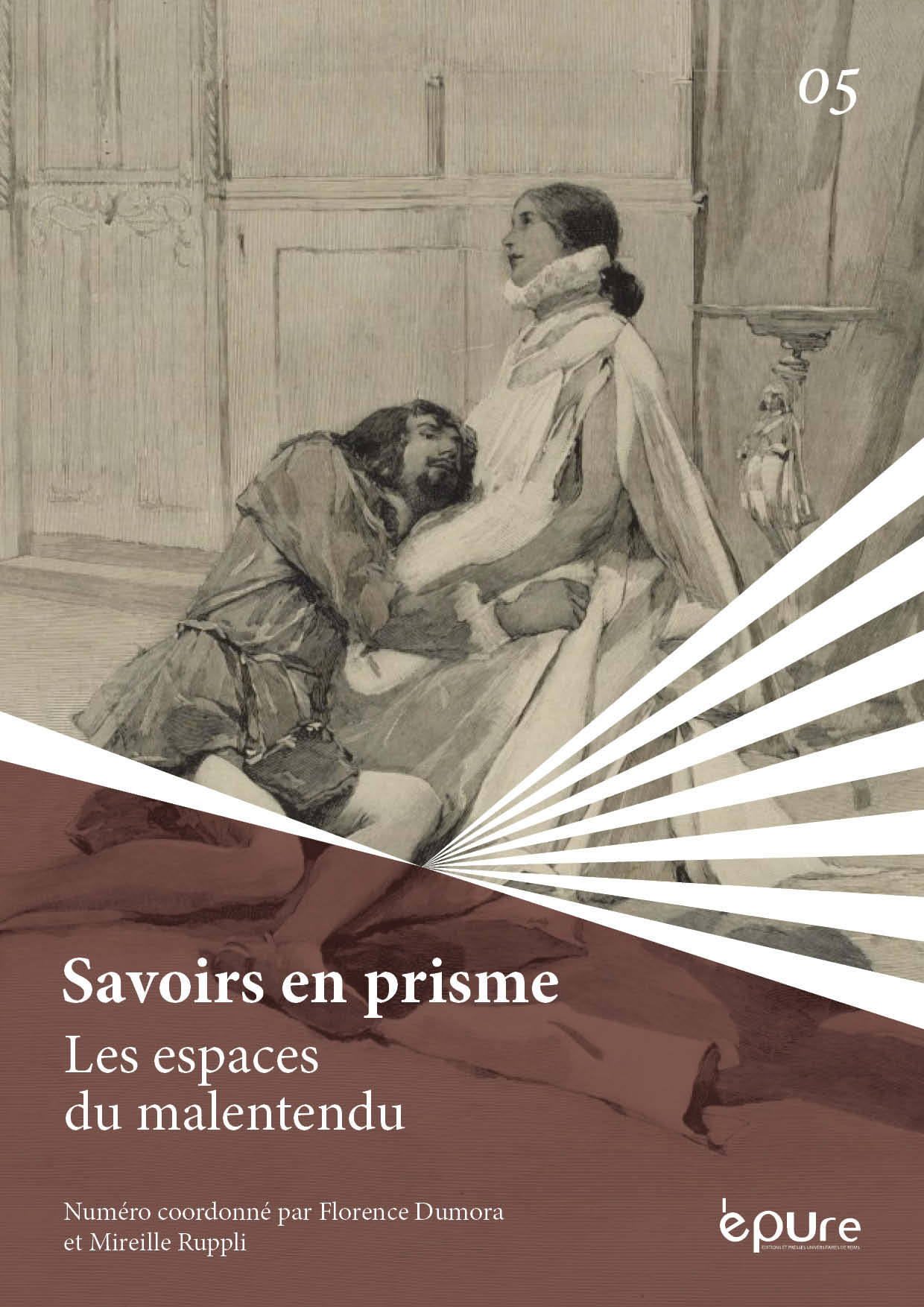Écho ou les dangers de la voix dans la littérature élisabéthaine
Abstract
If there is one myth which is founded on misunderstanding, it is that of Echo and Narcissus. Indeed their story starts with an acoustic and verbal quid pro quo which will lead the nymph to her tragic fate (See Ovid, The Metamorphoses, III). This myth is fundamental because beyond the fable, it arouses the question of the relationship between the notions of sameness and otherness and the way communication and its distortion work. It also shows how repetitions can generate alteration of form which consequently creates a new meaning. Besides this myth draws attention to what we believe we have heard (auditory illusion) and the real alteration of sounds and words in nature which comes from a play between proximity and distance. We will study how the sixteenth century English literature used this natural acoustic phenomenon and turned it into a literary device highly appreciated in both pastoral poetry and tragedy, as shown in Romeo and Juliet – the prime play of repetitions, whispers and misunderstandings – or in other plays by Shakespeare which explore the meanderings of the voice and the blurring of signs.
Copyright (c) 2020 Savoirs en prisme

This work is licensed under a Creative Commons Attribution-NonCommercial-ShareAlike 4.0 International License.


